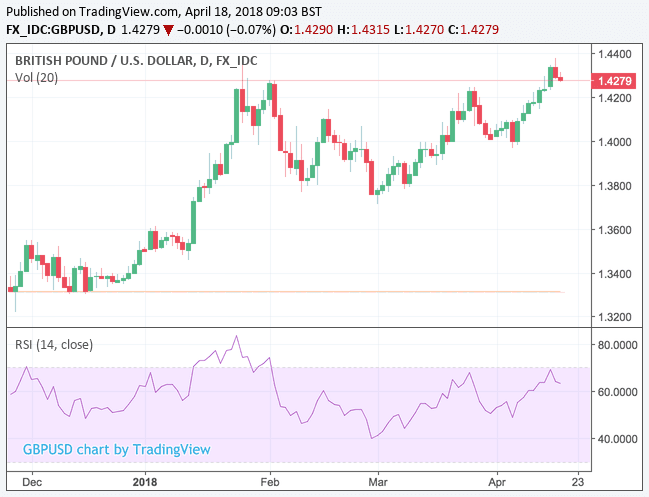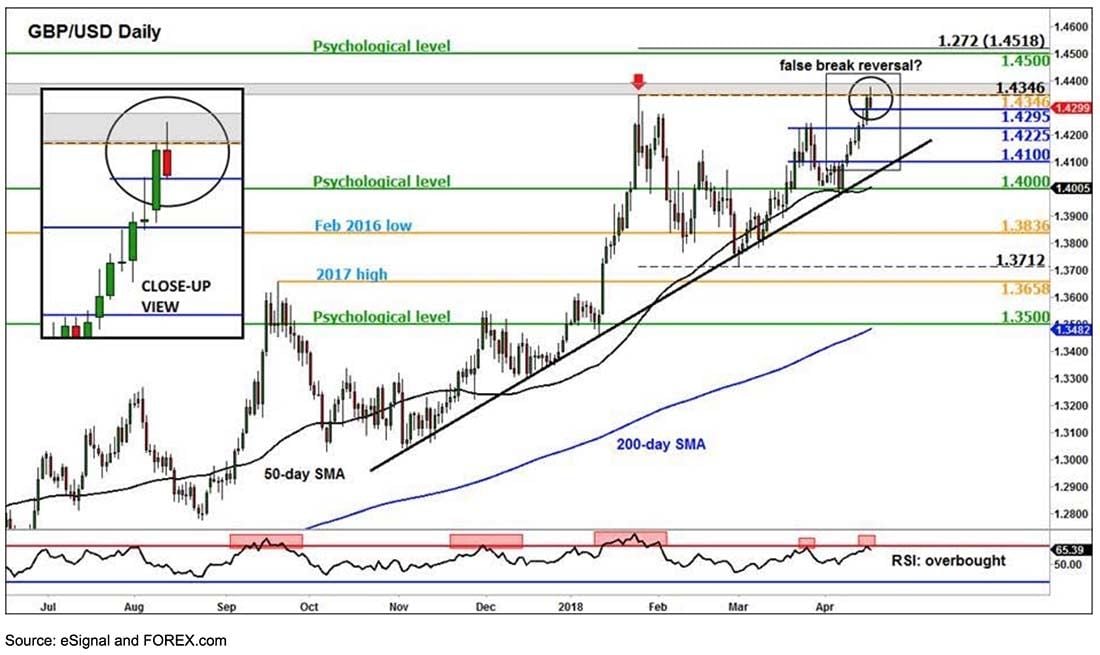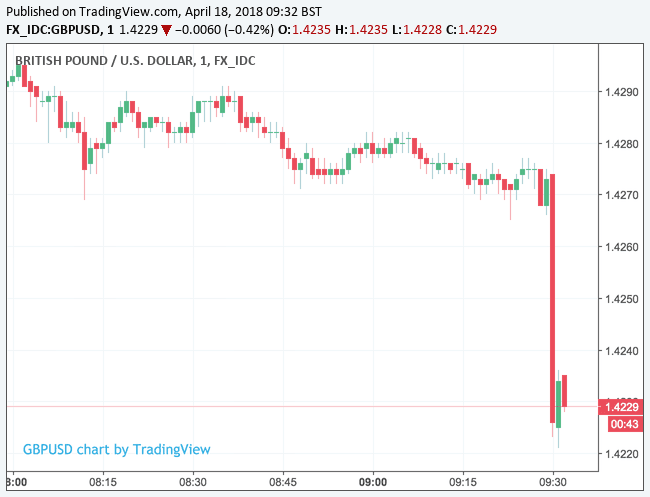GBP/USD Advance Excessive say Analysts and Reaction to Inflation Data Confirms this to be the Case
- Pound-Dollar rate might retrace back down to 1.40 say LMAX Exchange
- RSI readings say consolidation is due
- GBP/USD quoted at 1.4211 at time of writing as UK inflation data disappoints

Image © Kasto, Adobe Images
There is growing speculation amongst currency market specialists that Sterling's recent run higher against the US Dollar might be a case of 'too much too soon' and that some gains must be given back.
The Pound-to-Dollar exchange rate has this week touched a fresh multi-month high at 1.4376 but has since retraced back to 1.4276 with some softer-than-forecast wage data helping to take the shine off a strong advance that lasted seven consecutive days.
But, for some, this decline has more to do with a market that is guilty of displaying over exuberance than a soft set of data; indeed, looking at the data in detail we see the UK labour market looks set to remain robust and deliver further wage rises over coming months.
"The latest break to a fresh yearly high above 1.4346 has confirmed the next meaningful higher low at 1.3712, opening an eventual measured move upside extension to the 1.5000 area. However, the major pair may not be ready to extend the run just yet in 2018, with daily studies starting to looked stretched following what has already been an aggressive move early in the year," says Joel Kruger, an analyst with LMAX Exchange.
Kruger believes the need for consolidation leaves the door open for a more significant corrective decline, with room to easily extend back below 1.4000.
"Key short term support comes in at 1.4146 and a break below would strengthen this outlook," says Kruger.
We do note however that GBP/USD's Relative Strength Index (RSI) is at 63 - the RSI is a good measure of momentum and can also tell us when a move is getting overdone.
A reading above 70 typically means an asset is overbought, while a reading below 30 means it is oversold.
Looking at the RSI in the below we note that the RSI rarely goes above 70 and can signal a period of consolidation when it does:
Also note that the RSI was about to breach 70 this time around but pulled back into normal levels. Therefore, from a technical perspective we would suggest that consolidation is to be expected and the uptrend is not necessarily dead.
Fawad Razaqzada, a technical analyst with Forex.com notes the GBP/USD exchange rate "does look a little overbought anyway, given its sizeable rally of late."
"In fact, from a purely technical analysis point of view, today’s failure to hold above the previous 2018 high of 1.4345 is a sign of potential weakness. A daily close below this level would create a potential false break reversal pattern. But it’s still early days; let’s see how things will develop as we head into the second half of the week," says Razaqzada.
Advertisement
Get up to 5% more foreign exchange by using a specialist provider to get closer to the real market rate and avoid the gaping spreads charged by your bank when providing currency. Learn more here.
Pound Suffers Heavy Selling on Inflation Data Disappointment
The Pound was falling ahead of the release of UK inflation data, but when the numbers hit trading screens at 09:30 B.S.T on Wednesday, April 18, the Pound was put on sale.
The Pound-to-Dollar exchange rate promptly fell 0.6% to be quoted at 1.4211 after the Office for National Statistics reported inflation for March had fallen back to 2.5% from 2.7% previously, when analysts were forecasting a reading of 2.7%.
This is undoubtedly good news for consumers as it means wages are now likely to comfortably outstrip price rises.
This should set the UK economy up nicely for the remainder of the year.
However, for Sterling core CPI came in at 2.3%, down from a previous 2.4%, when markets were forecasting a rise of 2.5%. Core CPI matters as it is organically grown inflation i.e. that inflation that results from healthy economic growth and it is therefore something that the Bank of England is able to target.
The headline inflation rate on the other hand can be influenced by external factors such as the value of the Pound and global fuel prices.
Therefore, markets are betting that the fall in core CPI will mean the path of interest rate rises at the Bank of England over coming months will be less severe as many had thought the Bank would raise rates at least twice in 2018 in order to try and cool inflation.
The Pound tends to track expectations for future interest rate rises, therefore a softer path of rises is negative for Sterling.
Advertisement
Get up to 5% more foreign exchange by using a specialist provider to get closer to the real market rate and avoid the gaping spreads charged by your bank when providing currency. Learn more here.







